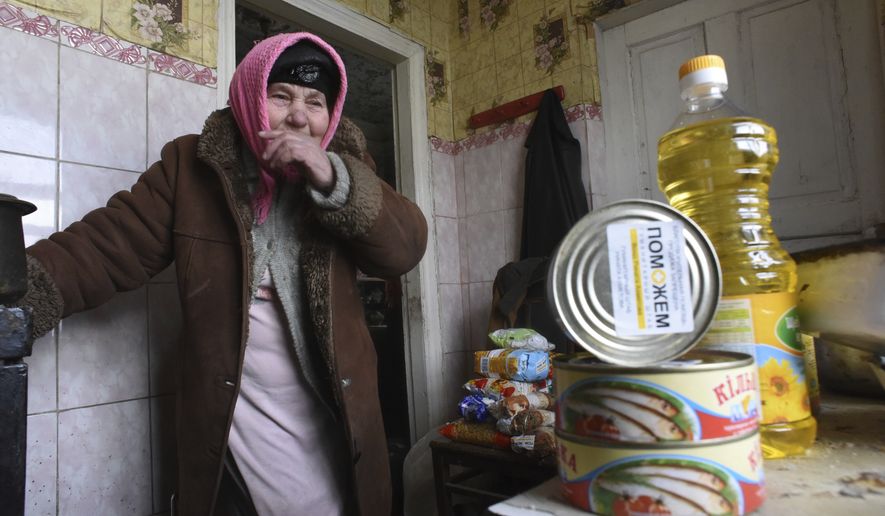OPINION:
The specter of nationalism is spreading across Europe, and nowhere is the strain more virulent or potentially dangerous than Ukraine.
Russian media outlets have made it a national pastime to warn of “Ukrainian Nazis” and the nationalist extremists who supposedly threaten the very existence of the government in Kiev. Much of the violence and rioting from some of these groups can most likely be traced back to the Russian security services, attempting to instigate problems for the government of Ukrainian President Petro Poroshenko.
Even discounting the Russian disinformation campaign, however, a nationalist powder keg is building in the Ukrainian east.
To understand the issue, take a step back and understand that even as the pro-Kiev Ukrainian side fought for territory against pro-Russian separatists in Novorossiya, or “New Russia,” as the rebels like to call their enclave, they were also trading with them, providing funding to those killing Ukrainian youths with Russian artillery.
This trade was primarily for natural resources, mostly coal, desperately needed to feed Ukrainian steel mills and other industrial plants in the unoccupied areas of Donetsk. It was a deal with the devil as coal cars traversed the line between eastern and western Ukraine, satisfying both sides with the product or currency they needed, while young men and women died on the front lines, along with civilians. It was globalism in action.
It seems that Ukrainian veterans of the war in Donbass, joined by other nationalists, decided to do something about this. It’s understandable — imagine if your son, husband or father was killed in the fighting in the east and you understood full well your own government was providing your enemy with financial support.
Several weeks back, blockades were set up on train lines running from rebel-held territory into Ukraine proper, preventing much-needed coal from making its way to hungry ArcelorMittal plants in Dnipropetrovsk. Neither side was happy with the blockades.
Kiev is running out of coal to make steel, and the rebels have been cut off from an important source of cash. Meanwhile, the separatists have begun to trade directly with Russia for their products. Moscow has upped the ante by agreeing to accept official government documents produced in the rebel-controlled territories of Luhansk and Donetsk, basically laying the groundwork to recognize those areas as independent states, following the model in South Ossetia and Abkhazia in Georgia, and Transnistria in Moldova. The result: perpetual, frozen conflicts that serve the Kremlin’s interests.
The Ukrainian government is being pressured by industrial factions to end the blockades, and Mr. Poroshenko has been forced into an uncomfortable position. Does he side with global industry and remove the blockades, triggering a loss of support in parliament? Or does he leave the blockades in place and find other ways to provide coal to global corporations, providing much-needed business for a stumbling Ukrainian economy?
All this plays out as Ukraine is fighting a legacy of internal corruption left over from its Soviet experience, corruption that has strangled growth in almost all areas of the economy. The International Monetary Fund recently released a small piece of the $17.5 billion aid package agreed to in 2015, but much remains to be done to satisfy the international body that Ukraine can fix its problems and is deserving of additional aid. The Ukrainian central bank recently warned that the blockades could cut growth in half this year.
Mr. Poroshenko is walking a tightrope. He is damned if he breaks the blockades and damned if he doesn’t. However, with nationalist pride surging around the world and globalism turning into a dirty word, perhaps he should side with the veterans who are passionate about not aiding and abetting Kiev’s enemy at home.
• L. Todd Wood is a former special operations helicopter pilot and Wall Street debt trader, and has contributed to Fox Business, The Moscow Times, National Review, the New York Post and many other publications. He can be reached through his website, LToddWood.com.
• L. Todd Wood can be reached at ltwood@123washingtontimes.com.




Please read our comment policy before commenting.